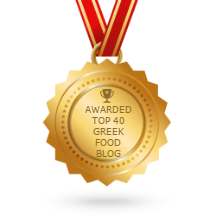
Greece, a land rich in history, culture, and culinary traditions, offers a fascinating glimpse into the world of nutritional habits that have stood the test of time.
From the sun-drenched shores of the Aegean to the rugged landscapes of the Peloponnese, Greek cuisine embodies a harmonious blend of fresh ingredients, regional flavors, and mindful eating practices.
At the heart of Greek nutritional habits lies the Mediterranean diet, renowned worldwide for its health benefits and longevity-promoting properties.
This diet emphasizes whole foods such as fruits, vegetables, legumes, nuts, seeds, and olive oil, while minimizing processed foods and red meat consumption.
Fish, particularly varieties rich in omega-3 fatty acids like sardines and mackerel, feature prominently, providing a source of lean protein and essential nutrients.
One of the hallmarks of Greek nutritional habits is the emphasis on seasonal and locally sourced ingredients.
Greeks have long cherished the concept of “farm-to-table,” favoring fresh produce from local markets or their own gardens over imported or processed foods.
This not only ensures optimal flavor and nutritional content but also fosters a deeper connection to the land and agricultural heritage.
Mealtimes in Greece are regarded as sacred rituals, bringing families and communities together to savor the joys of shared food and conversation.
Portions are typically modest, allowing for greater enjoyment of each dish and preventing overeating.
Meals are often accompanied by a glass of wine, preferably red, which is believed to have antioxidant properties when consumed in moderation.
Greek nutritional habits also embrace the concept of balance and moderation.
While indulging in rich desserts like baklava or loukoumades is certainly a delight, these treats are enjoyed sparingly as part of special occasions rather than daily indulgences.
The Mediterranean diet’s emphasis on variety ensures a wide array of nutrients and flavors, promoting overall health and well-being.
Furthermore, Greek nutritional habits extend beyond what is on the plate to encompass a holistic approach to wellness.
Regular physical activity, such as leisurely walks along cobblestone streets or invigorating swims in the crystal-clear waters of the Mediterranean, is woven into the fabric of daily life.
Coupled with ample sunshine and a relaxed pace of living, this active lifestyle contributes to the vitality and longevity observed in many Greek communities.
In essence, Greek nutritional habits offer a timeless blueprint for nourishing both body and soul. By embracing wholesome ingredients, mindful eating practices, and a sense of cultural heritage, we can all draw inspiration from the wisdom of this ancient culinary tradition to cultivate a healthier and more fulfilling way of life.






Leave a Reply